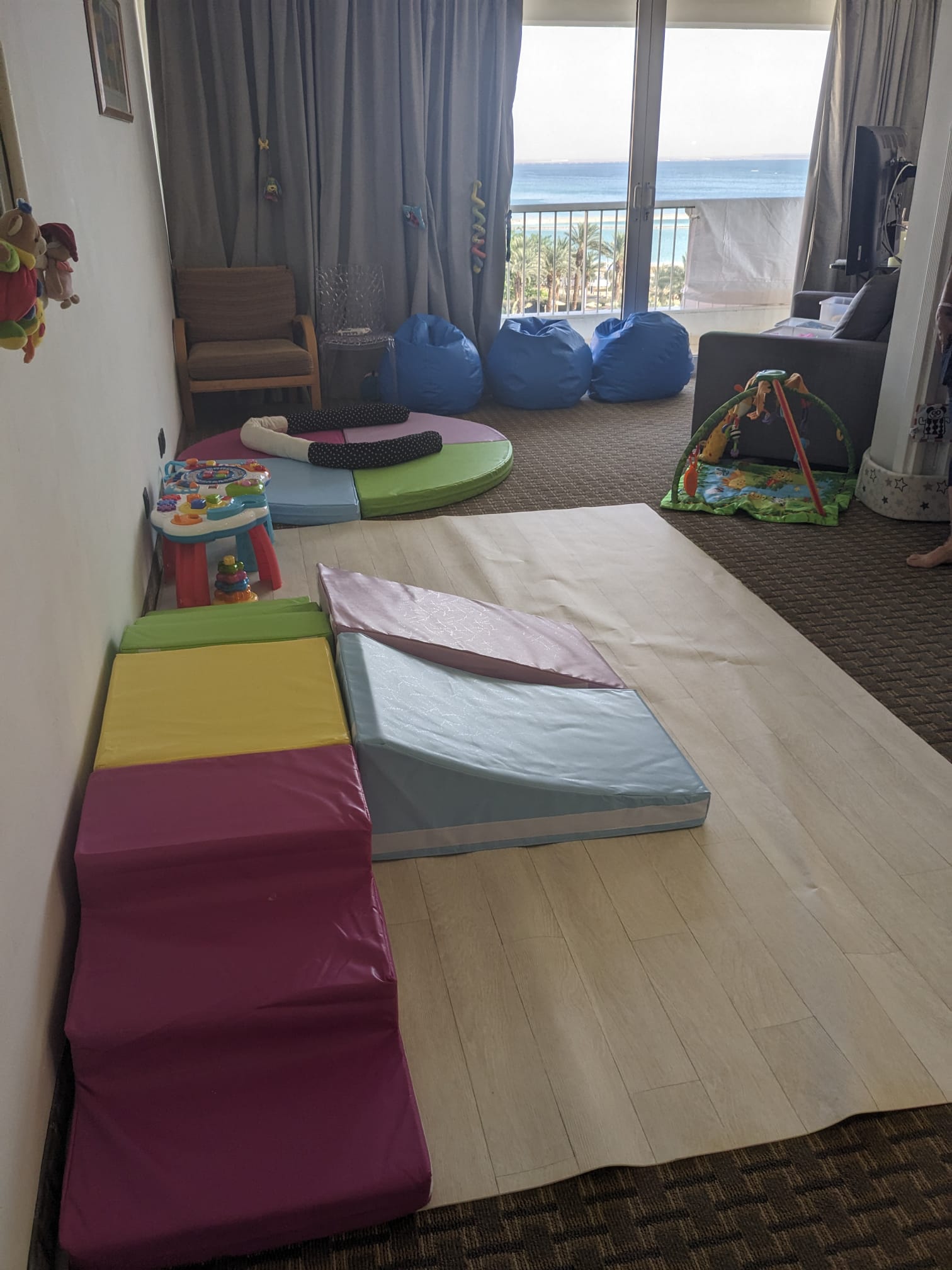"They Want to Be Kids, But Their Stories Are Tough": The Kindergarten Teacher of Be'eri's Children in a Heart-Wrenching Interview
Bat Be'eri is a high school teacher in Akko but due to the war, she temporarily became a kindergarten teacher for 'Tamar' kindergarten of Kibbutz Be'eri. She shares her unique mission.
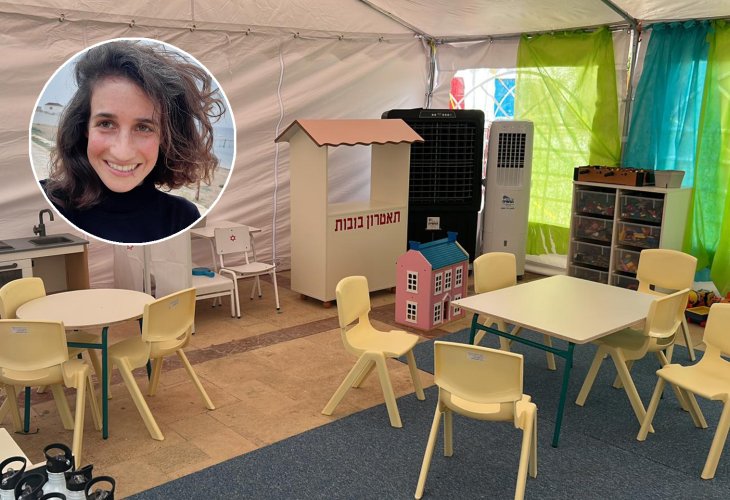 (In the circle: Bat Be'eri)
(In the circle: Bat Be'eri)"My name is Bat Be'eri, and I know the first association nowadays with this name is that I live in Kibbutz Be'eri, but that's not true at all," says Bat Be'eri at the start of our conversation, introducing herself as the kindergarten teacher at 'Tamar' of Kibbutz Be'eri's children.
Bat actually lives in Akko and works as an educator at the 'Dror Batei Hinuch' high school network. However, following recent events, she was asked to help open the kindergartens for Kibbutz Be'eri's children, and she found herself at a Dead Sea hotel where all the kibbutz families were housed.
"The kindergarten opened about two and a half weeks ago," Bat shares. "We only did it after pre-discussions with all the parents to understand the children's state and hear about how the child was before everything happened. We tried to understand who they really are. These talks took place about a week after the catastrophe, amidst a horrible atmosphere, everything was fresh, and it was not easy. Nevertheless, 'Dror Batei Hinuch' made a clear decision to open the kindergartens, and the more time passes, we realize just how right and important this was."
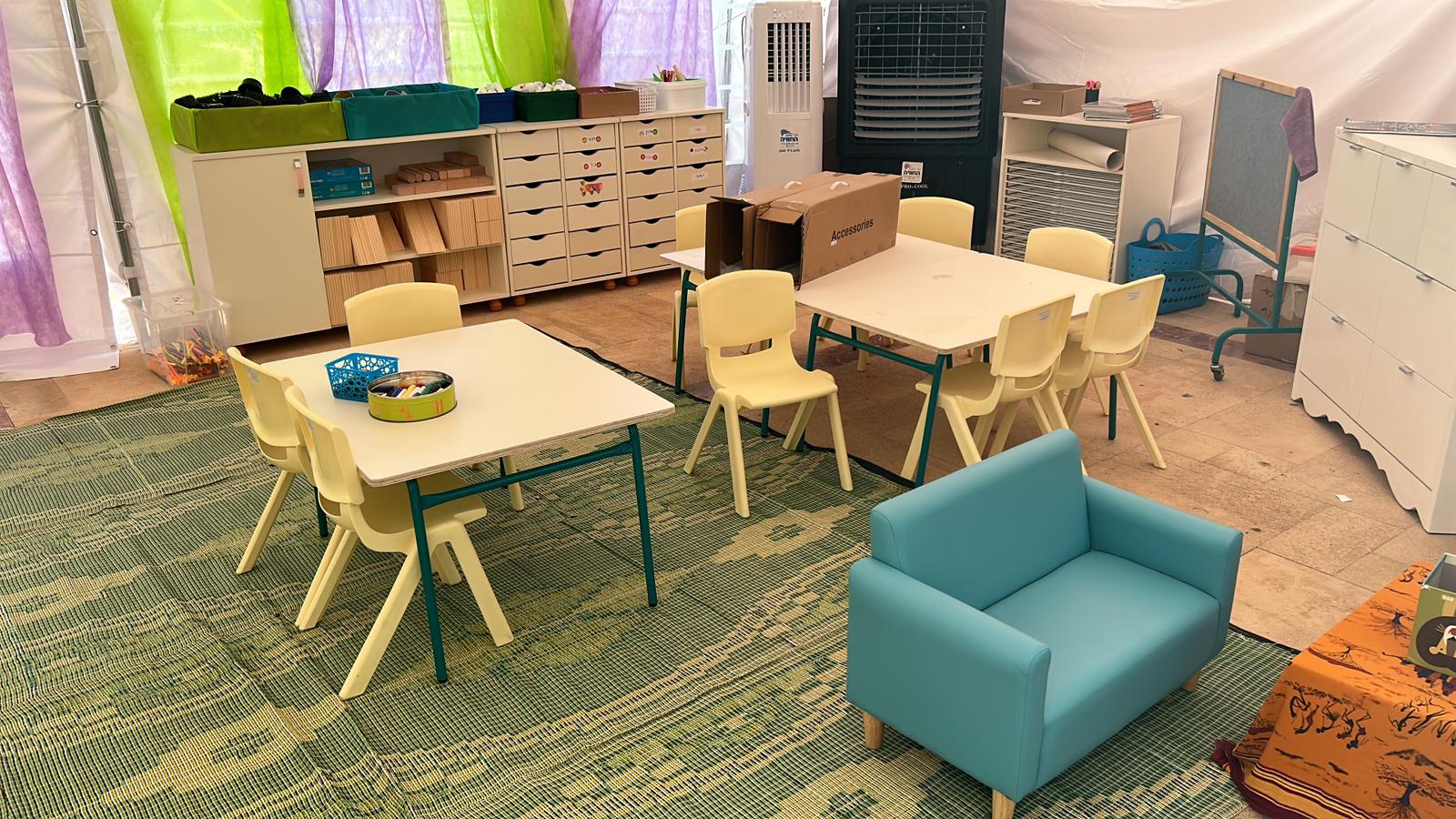
Returning to Normalcy
"I teach ages 3-4," says Bat, "and I see up close that the children need a framework and routine that resembles as much as possible what they knew before the tragedy. That's also why we intentionally kept the kindergarten names as they were at the kibbutz because in the kibbutz, every child knows exactly which kindergarten they attend, and it accompanies them for years. The composition of the children in the kindergarten also remained almost the same as it was originally. It's important for us to bring them back to what is familiar and loved."
What do the children remember about what happened?
"These are very young children, but it's clear they remember every detail. We have children in the kindergarten who stayed in a bomb shelter for twenty hours, without bathrooms, water, or electricity, some with a father who left for an emergency unit and stayed only with the mother. There are children who didn't hide in the shelter but were in conversation with the parents or were on the run. Some had their homes burned down, and they remember the smell, and there are even those who weren't at the kibbutz that day. But they, too, have their own challenges. Loss is, of course, a significant part of their lives. Some children lost grandparents, some lost parents or other close family members, and even those who didn't lose someone in the family know many kibbutz members who were murdered because it's a kibbutz, and in a kibbutz, everyone knows everyone."
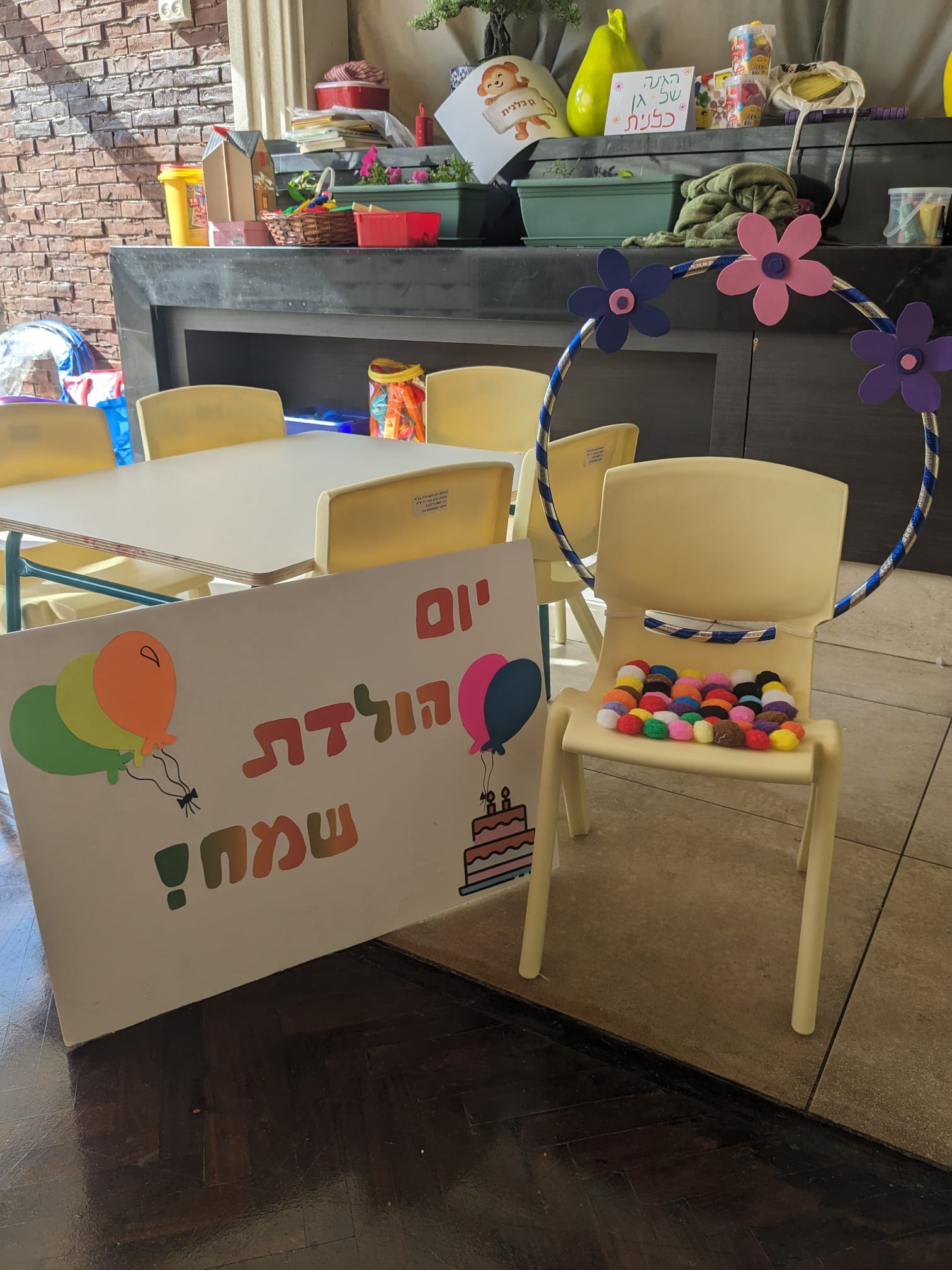
Do the children talk about it and share memories?
"They share a lot, but all according to their age. For example, they might say to me, 'You know my house was burned?' or 'You know my dolls stayed in Be'eri?' But mostly, I see they express their feelings and memories through play. In our garden, we have a house, and they constantly go into it as if it was a bomb shelter and reenact the situations they experienced. They say, 'Let's hide and be quiet' and also explain: 'There are bad people outside' or 'thieves' or 'terrorists.' Each according to what they were told. The guidance from the psychologist is to talk with them about these matters and try to steer the play into a positive direction, turning them into figures of control and power, ensuring that this time they emerge from the situation as victors. The idea is to bring them out of the deep freeze they were in during the time in the bomb shelter."
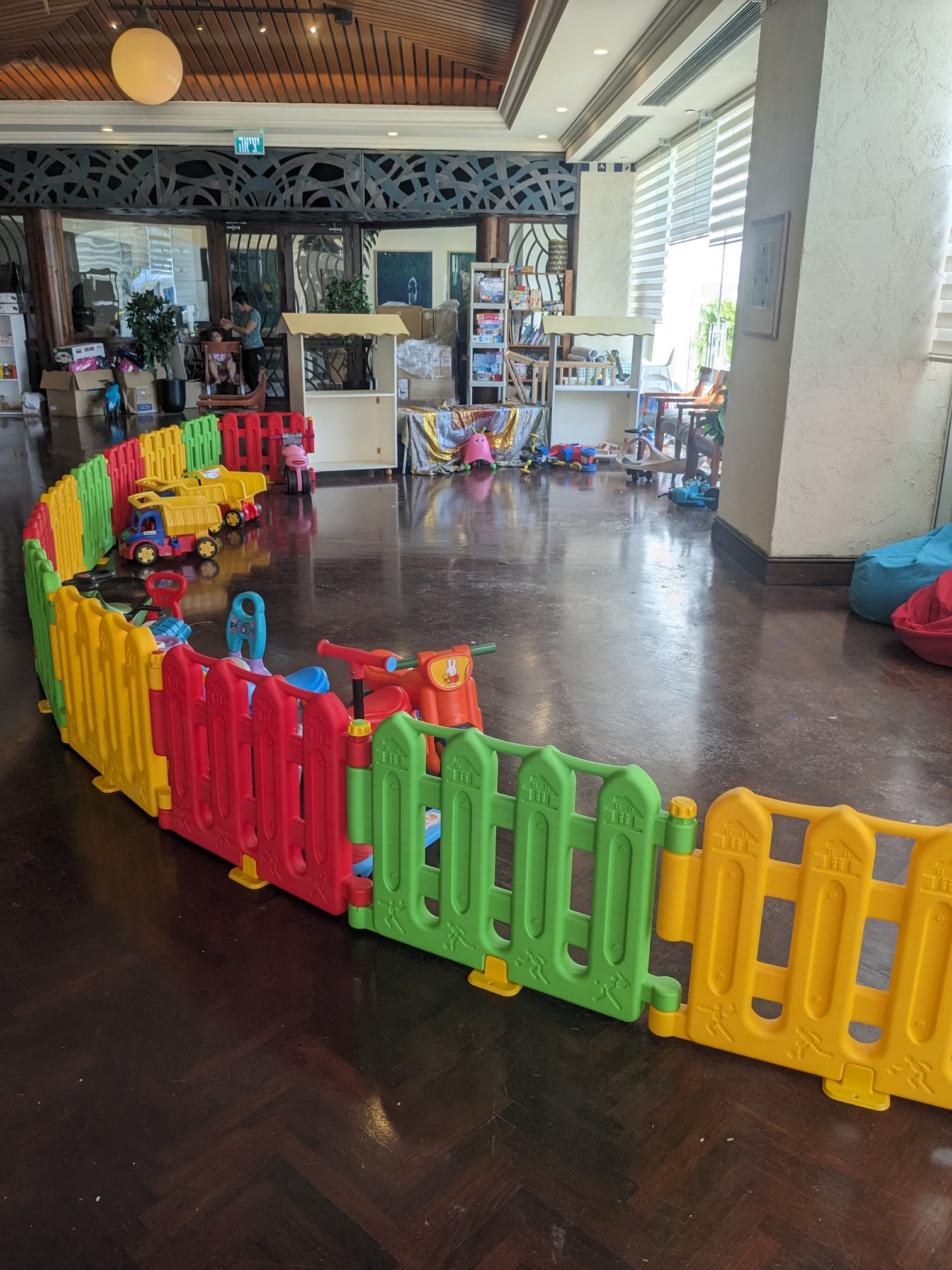
Marching Forward, to Victory
But beyond those memories and talks, Bat emphasizes that the routine in the kindergarten is an ordinary routine in every way. A kindergarten routine. "We have a daily schedule that includes meetings, playground games, breakfast, and the like. Just like in a regular kindergarten. We also have songs, exactly as they used to sing in the kindergarten, and we make sure to sing them every day to connect them to what they remember and know."
And what are the plans going forward? How long do you think you'll stay in this role?
"Before they brought me and the other workers here, they made it clear we had to commit to at least a month, since the whole idea is to create a stable framework for the children that doesn't change every few days. Every day that passes, I see how much the children indeed adapt to the new place, they become very attached to me, and it gives them a lot of stability within the insane reality they experience. I feel it's also very significant for the parents to know who is with their children, and they have already formed bonds with us and trust the staff. That's why I don't see myself leaving any time soon, and at this stage, I continue with these sweet children."
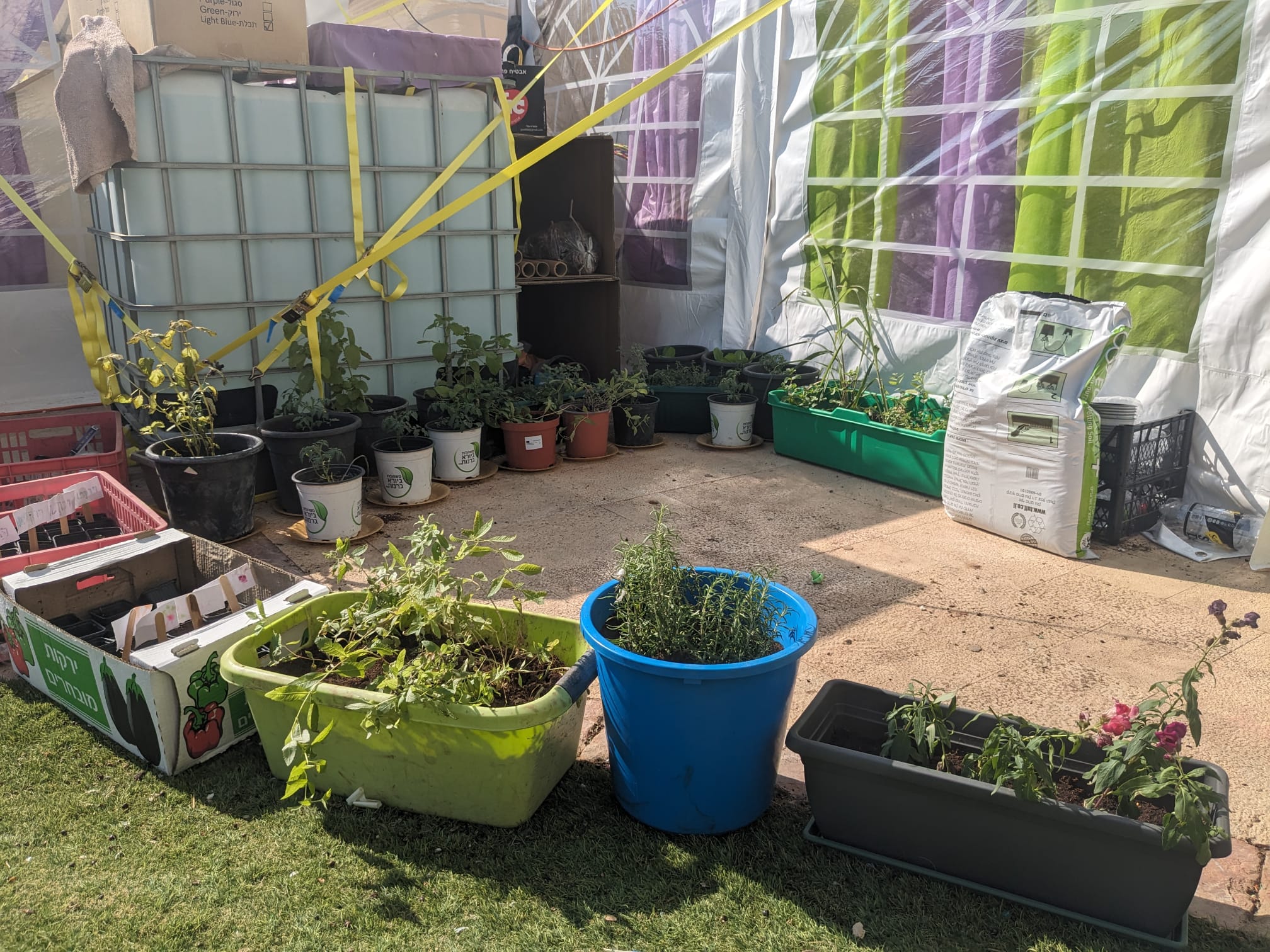
When asked "until when," Bat struggles to answer. "Does any of us really know what will happen to us tomorrow?" she finally asks. "Even the kibbutz families don't know how long they'll stay at the Dead Sea, when they can return to Be'eri, or if at all. But one thing is clear – I've become deeply attached to the children and the parents, and it will be very hard for me to leave them."
Bat pauses for a moment, then candidly adds that, in her opinion, there is much to learn from these children. "The whole country has been in a grievous mourning process for a month now, and the children are part of such a process, but they manage to lift their heads and look forward. Despite all they have gone through, many times they can also genuinely smile and be happy from the heart. Seeing them play, laugh, and enjoy truly gives hope and creates a feeling of triumph," she concludes.
